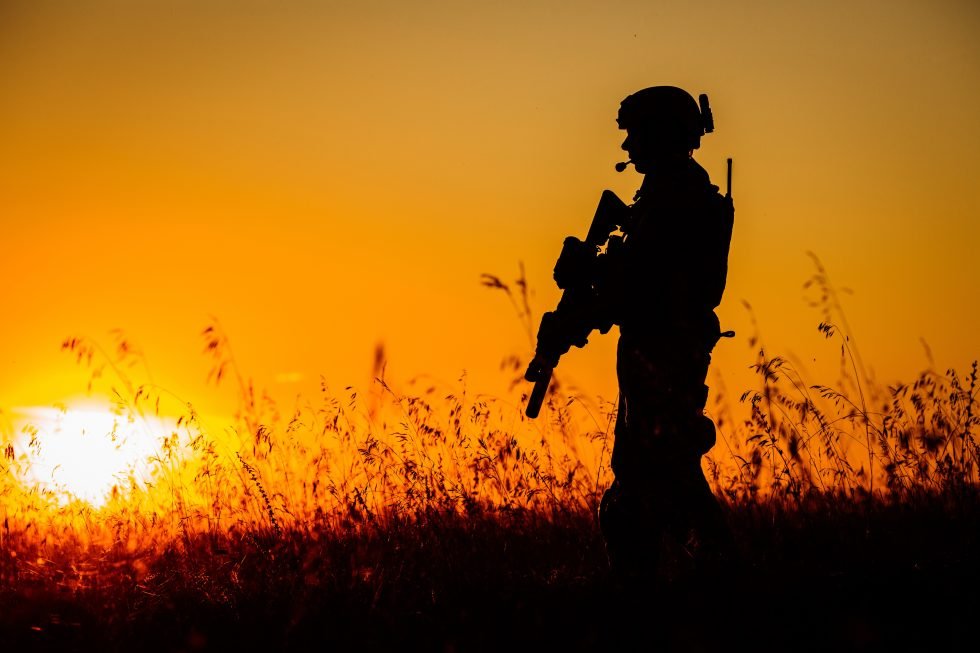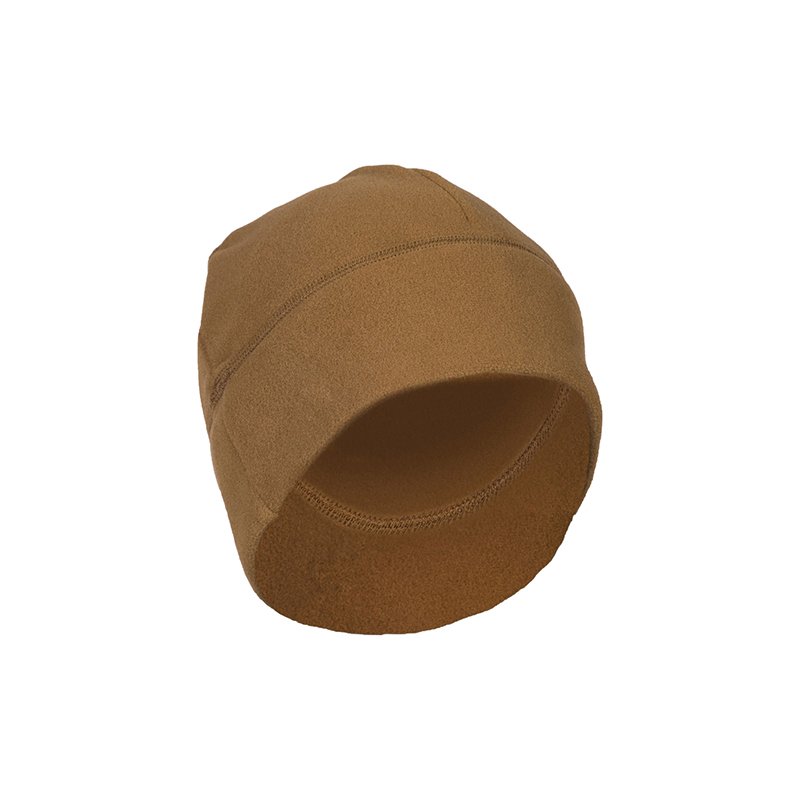How Serket Military Uniforms Adapt To The Seasons
Changing seasons present unique challenges for soldier readiness. Warfighters must be ready for deployment to a variety of environments and climates at any given time. Adjusting to these changes can mean the difference between life and death in some critical missions, so everyone here at Serket is always willing to go the extra mile on how we can best prepare you for the changing seasons. What should you come to expect on a year-round basis? Read below to find out.
Spring
As the winter frost begins to thaw and the flowers start to bloom, military forces must adapt to the changing weather conditions of spring. Military clothing, carefully designed to withstand the rigors of combat and protect soldiers from the elements, also needs to cope with the unique challenges of the spring season.
One of the considerations for military clothing in spring is temperature variability. Spring weather can be unpredictable, with chilly mornings, warm afternoons, and cool evenings. Military clothing must be versatile enough to keep soldiers comfortable in changing temperatures. Layering is a common strategy used in military clothing to address this challenge.
Soldiers can add or remove layers as needed to regulate their body temperature. For example, a typical spring military uniform may consist of a base layer to wick away sweat, a mid-layer for insulation, and an outer layer for protection against wind and rain. This layering system allows soldiers to adapt to changing weather conditions and remain comfortable throughout the day.
Another consideration for military clothing in spring is moisture management. As the snow melts and rain showers become more frequent, soldiers must contend with increased humidity and dampness. Military clothing often incorporates moisture-wicking technology to keep soldiers dry and prevent chafing and blisters. Breathable fabrics and ventilation features are also essential in military clothing for spring to allow moisture to escape and prevent overheating during physical activity.
In addition to temperature and moisture management, military clothing for spring must also protect against the elements. Spring weather can be unpredictable, with sudden rain showers, gusty winds, and muddy terrain. Military clothing must withstand these challenges.
Waterproof and windproof materials are often used in military clothing for spring, including jackets, pants, and boots, to keep soldiers dry and comfortable in wet conditions. Reinforced knees and elbows, as well as slip-resistant soles on boots, are also common features to help soldiers maintain traction and stability in muddy or slippery terrain.
For the springtime, we recommend utilizing our flame-resistant base layers. Designed for optimum performance and comfort, the Serket™ FR Short Sleeve T-shirt is comfortable and quick drying. The short sleeve is available in two weights while the long sleeve is available in three giving you the control to layer based on the unpredictable weather of spring. You can learn more about these base layer shirts by clicking here.
Summer
One of the primary considerations for military clothing in the summer is heat management. High temperatures can pose health risks for soldiers, including heat exhaustion and heat stroke. Therefore, military clothing keeps soldiers cool and comfortable in hot conditions.
Breathable fabrics, such as lightweight and moisture-wicking materials, are commonly used in summer military uniforms to allow air circulation and facilitate the evaporation of sweat, helping to regulate body temperature. Ventilation features, such as mesh panels or vents in strategic areas, are also incorporated into military clothing to enhance airflow and increase breathability.
Sun protection is another aspect of military clothing in the summer season. Prolonged exposure to the sun can cause sunburns, skin damage, and an increased risk of skin cancer. Military clothing often includes UPF (Ultraviolet Protection Factor) technology that provides enhanced sun protection to soldiers. Wide-brimmed hats or caps with neck flaps are also common in summer military uniforms to protect soldiers’ faces, necks, and ears from the sun’s harmful rays.
Hydration is crucial in hot weather, and military clothing can facilitate proper hydration for soldiers. Many military uniforms have pockets or pouches to carry water bottles or hydration packs, allowing soldiers to stay hydrated during prolonged periods of physical activity. Some military clothing also includes moisture-wicking technology that helps to keep the skin dry and prevents chafing, facilitating the body’s natural cooling process through sweat evaporation.
Insect protection is another consideration for military clothing in the summer season. In many regions, summer brings an increase in insect activity, including mosquitoes, ticks, and flies, which can transmit diseases. Military clothing may include insect-repellent properties or is treated with insecticides to protect soldiers from insect bites and reduce the risk of insect-borne diseases. Additionally, military clothing with tight weaves or closed collars and cuffs can provide a physical barrier against insects
Finally, comfort and mobility are essential factors in military clothing for summer. Lightweight, loose-fitting clothing is often preferred to allow for increased airflow and freedom of movement. Quick-drying fabrics are also common in summer military clothing to prevent discomfort from sweat-soaked clothing during prolonged missions or exercises.
In the summer, you need something light and efficient to help regulate body temperature. The Serket™ Tropical Weight, No Melt Combat Shirt is strategically engineered to be comfortable, durable, protective, and provide the necessary features while omitting costly, cumbersome, and unpurposed features. Paired with a comfortable, robust, lightweight Cordura NYCO knit torso, the Serket Tropical Weight Combat Shirt is the lightest and coolest available, while still maintaining exceptional durability and no melt/no drip safety standards. You can learn more about it here.
Fall
As the leaves start to change color and the temperatures begin to cool, military forces must adapt to the challenges of the fall season. Military clothing, designed to provide protection and functionality in various environments, must cope with the unique demands of the transitioning weather during the autumn season.
One of the primary considerations for military clothing in the fall is temperature variability. Fall weather can be unpredictable, with cool mornings, mild afternoons, and chilly evenings. Military uniforms must provide adequate insulation to keep soldiers warm in cooler temperatures.
Many military uniforms incorporate insulating materials, such as fleece or synthetic insulation, to provide warmth without adding excessive weight or bulk. Additionally, layering remains a common strategy in fall military clothing, allowing soldiers to add or remove layers to regulate their body temperature throughout the day.
Moisture management is another crucial aspect of military clothing in the fall season. As the fall season brings increased rainfall and dampness, military clothing must keep soldiers dry and comfortable. Waterproof and water-resistant materials are often used in military clothing, including jackets, pants, and boots, to protect against rain and damp conditions.
Seam-sealed construction and durable water-repellent (DWR) coatings are also common features in fall military clothing to enhance their water resistance. Additionally, moisture-wicking technology helps to keep soldiers dry by moving sweat away from the skin and preventing the accumulation of moisture.
Durability is essential in military clothing for the fall season, as soldiers may encounter rugged terrain, abrasive surfaces, and harsh weather conditions. Reinforced knees and elbows, as well as abrasion-resistant fabrics, are regular features in fall military clothing to enhance their durability and extend their lifespan. Robust zippers, buttons, and fasteners withstand the demands of fall weather and field conditions.
Finally, comfort and mobility remain important factors in military clothing for the fall season. Clothing that allows for ease of movement and flexibility is essential for soldiers to perform their duties effectively. Breathable fabrics and ventilation features, such as mesh panels or vents, are also incorporated into fall military clothing to enhance airflow and increase comfort during physical activity.
A great example of this with Serket is our Merino Wool Socks. Their range of weights allows you to pick the perfect sock for any given temperature, making them ideal for fall. The anti-blister blister design keeps your feet in prime condition for any mission. Serket socks will keep you warm in the cold and are breathable in the heat. To learn more about why Serket socks are a must-have, click here.
Winter
As winter arrives with its biting cold, snow, and harsh conditions, military forces must prepare to face the challenges of this season. Military clothing, designed to provide protection and functionality in extreme environments, must cope with the unique demands of winter weather to keep soldiers safe and effective in the field.
One of the primary considerations for military clothing in winter is insulation. Keeping soldiers warm in freezing temperatures is crucial to prevent cold-related injuries such as frostbite and hypothermia.
Military clothing for winter often incorporates heavyweight insulation materials, such as down or synthetic insulation, to provide maximum warmth without compromising mobility. Layering is very important in this season, allowing soldiers to add or remove layers as needed to regulate their body temperature in changing weather conditions.
Water and moisture management is another crucial aspect of military clothing in the winter season. Snow and ice can pose significant challenges, and military clothing must keep soldiers dry and comfortable. Waterproof and water-resistant materials, including jackets, pants, and boots, are essential to protect soldiers from moisture and maintain their core body temperature.
Seam-sealed construction, waterproof zippers, and durable water-repellent (DWR) coatings are essential in winter military clothing to enhance water resistance. Moisture-wicking technology is also vital to keep soldiers dry by moving sweat away from the skin and preventing the accumulation of moisture, which can lead to chilling.
Durability is crucial in military clothing for winter, as soldiers may encounter rough terrain, abrasive surfaces, and extreme weather conditions. Reinforced knees, elbows, and seat areas, as well as durable fabrics, are regular features in winter military clothing to enhance their resilience and extend their lifespan. Heavy-duty zippers, buttons, and fasteners to withstand the demands of winter weather and field conditions.
Finally, comfort and mobility remain vital factors in military clothing for winter. Clothing that allows for ease of movement, flexibility, and breathability is crucial for soldiers to perform their duties effectively in cold weather. Proper fitting and insulation in extremities, such as gloves, boots, and headgear, are also essential to protect soldiers from frostbite and maintain their comfort and performance in winter conditions.
To stay warm, Serket recommends wearing our Watch Cap. We use Polartec® Classic Microfleece with moderate stretch and a low-profile fit that offers warmth without weight and bulk. It is breathable, dries quickly, and covers the ears for warmth. The hat is also Berry compliant, which you can learn more about here.
No matter what season you are in, there are ways to stay safe and protected with the proper military clothing and personal protective equipment. Have you ever wondered how Serket came to be? Click here to learn the full story of how Serket started providing the military with clothing.
Contact Us
To keep up to date with Serket news, fill out the contact form here, so you’ll never miss another blog. If you’d like more information on how Serket can help you with your next mission, you can send us an email at Sales@SerketUSA.com. Whatever your challenge, you can feel confident knowing Serket provides you with a uniform built for performance.









